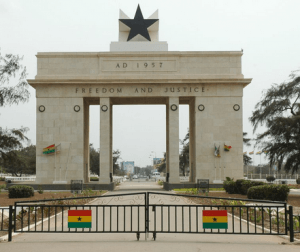Ghana slips in latest global economic competitiveness ranking
 Ghana has slipped from 111th out of 144 and is now ranked 119th, out of 140 countries across the world, in the 2015 – 2016 Global Competitiveness Rankings of the World Economic Forum.
Ghana has slipped from 111th out of 144 and is now ranked 119th, out of 140 countries across the world, in the 2015 – 2016 Global Competitiveness Rankings of the World Economic Forum.
Ghana’s index in the rankings, which capture the competitiveness of world economies on a scale of 1(least competitive) to 7 (most competitive), is 3.58, placing Ghana and 23 other African countries in the last quartile of 35 countries.
Competitiveness as defined by the World Economic Forum is “the set of institutions, policies, and factors that determine the level of productivity of an economy, which in turn sets the level of prosperity that the country can earn.”
The ranking assesses a country’s performance under three categories of 12 pillars (in total) that measure 113 indicators for productivity.
The 12 pillars are: institutions, infrastructure, macroeconomic environment, health and primary education, higher education and training, goods market efficiency, labour market efficiency, financial market development, technological readiness, market size, business sophistication, and innovation.
Ghana’s worst performance among the above 12 pillars, was its rating for macroeconomic environment: 2.79 over 7, placing it in the 136th position for macroeconomic environment.
Among the three categories of the 12 pillars, Ghana’s best performance was a sub-index of 3.76 over 7 (95th), in the category “efficiency enhancers” which comprises higher education and training, goods market efficiency, labour market efficiency, financial market development, technological readiness, and market size.
Switzerland, Singapore and the United States lead the pack in the ranking with indices of 5.76, 5.68 and 5.61 respectively, followed by Germany in fourth place with an index of 5.53, and the Netherlands in 5th with 5.50.
From 6th to 10th are Japan, Hong Kong, Finland, Sweden and the UK.
Singapore is however regarded by the World Economic Forum as the best performer in overall efficiency of markets, and is said to have together with Hong Kong SAR, the highest goods, labour, and financial market efficiency.
The report notes that competitiveness contributes to an economy’s resilience and countries that were rated as more competitive before the global financial crisis, such as Germany and Switzerland, tended either to withstand the global crunch better or bounce back more quickly.
“For example, the United States started growing again by 2010, while Greece took until 2014 to return to positive territory, its economy having contracted by 25 percent in the meantime”, the report says.
According to the ranking, Mauritius is Africa’s best performing country, in the 46th position with an index of 4.43.
The World Economic Forum says that in the wake of the global financial crisis and the “new normal” levels of lower economic growth, the overall prospects for future growth remain positive but “could still be derailed by the uncertainty fuelled by a slowdown in emerging markets, geopolitical tensions and conflicts around the world, as well as by the unfolding humanitarian crisis.”
The Global Competitive Index includes statistical data from internationally recognized agencies, notably the IMF, UNESCO and the WHO as well as data from the World Economic Forum’s annual Executive Opinion Survey on concepts that require a more qualitative assessment, or for which comprehensive and internationally comparable statistical data are not available.
By Emmanuel Odonkor
